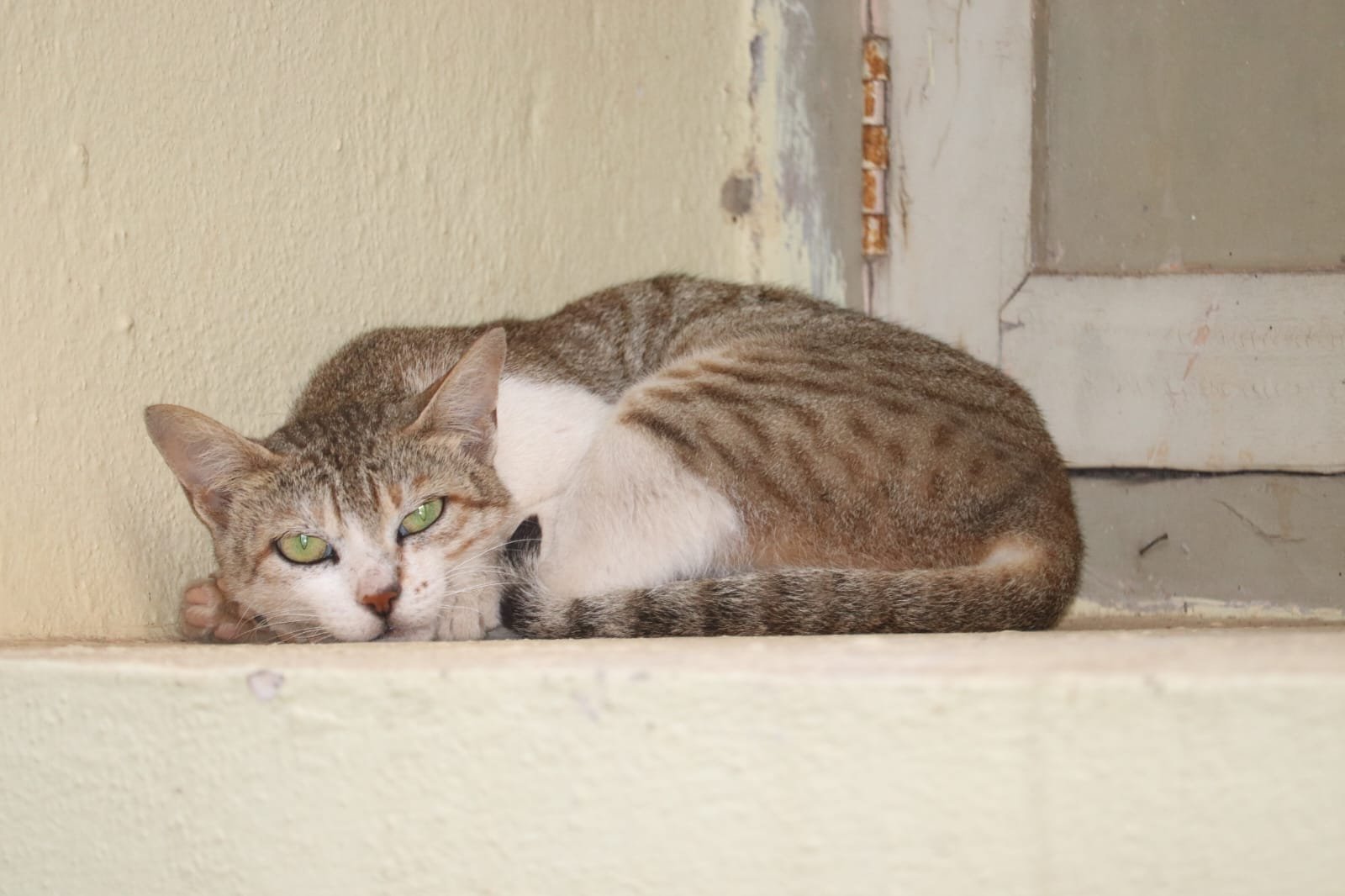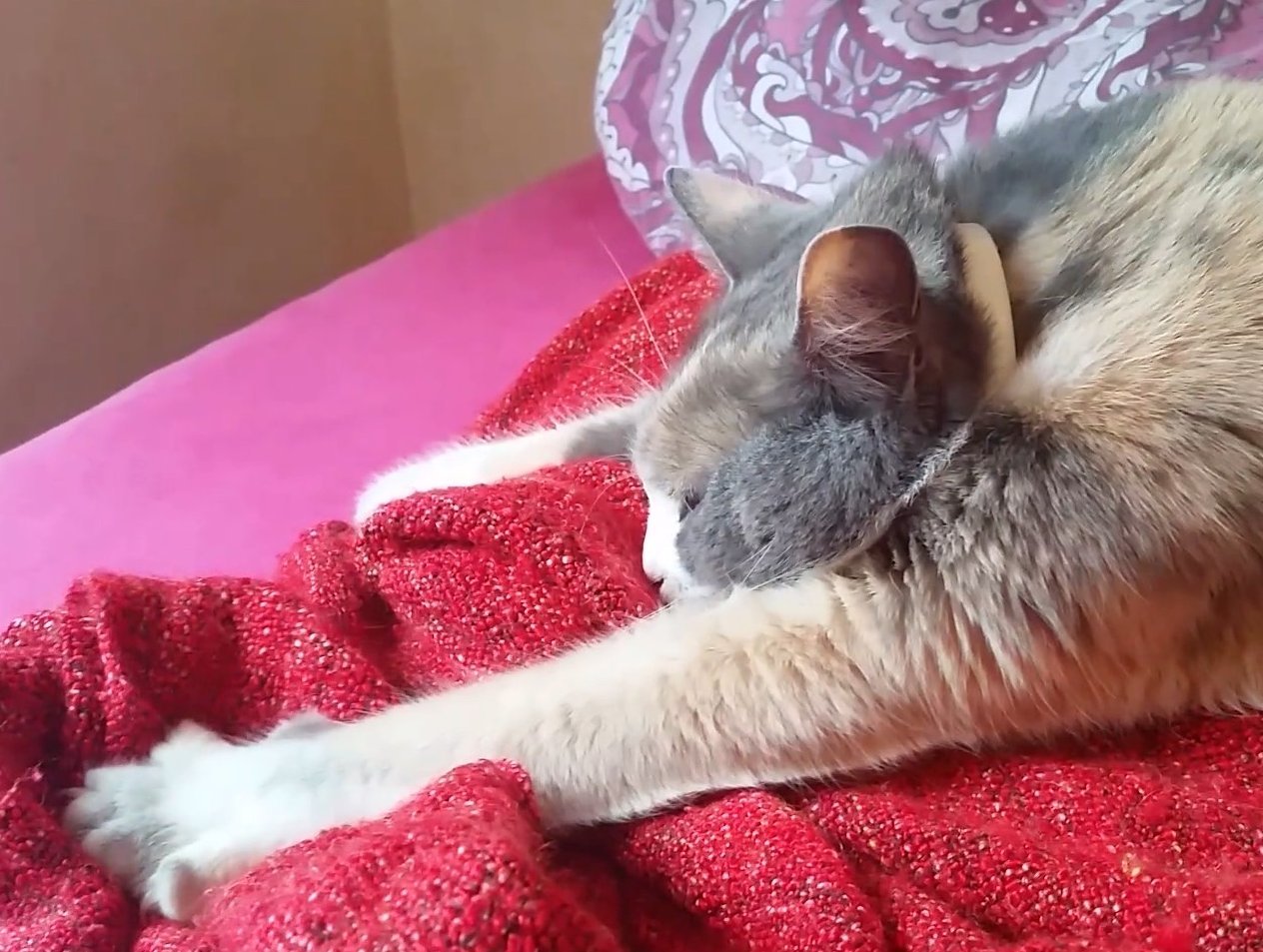Cats, with their mysterious nature and enigmatic behaviors, have always intrigued humans. Their seemingly quirky reactions often leave us puzzled, amused, or even concerned. However, these feline behaviors are not always just whims; they can be essential cues to understanding their emotions and well-being. Let’s delve into the fascinating world of feline reactions that are more than just “quirky”.
The Tail Twitch: More Than Just Annoyance
When a cat’s tail twitches, it often signifies more than mere irritation. This swift motion can indicate that your feline friend is in a state of high alert or excitement. For instance, if your cat spots a bird outside, the tail twitch becomes a sign of predatory anticipation. It’s akin to how humans might tap their feet when excited. Understanding this subtle cue can help you gauge when your cat is ready to pounce or play. Observing this behavior in context can prevent misunderstandings and ensure your cat feels understood.
Head Bumping: A Gesture of Affection
Head bumping, or ‘bunting,’ is more than just a quirky way for cats to greet you. It’s a profound gesture of affection and trust. When your cat bumps its head against you, it’s marking you with its scent, signifying that you are part of its territory and family. This behavior is their way of saying, “You’re mine, and I trust you.” Much like a hug in human terms, it fosters a bond between you and your feline companion. Embracing these moments can deepen your relationship with your pet.
Slow Blinks: The Cat’s Kiss

A cat’s slow blink is often described as the ultimate feline compliment. When a cat gazes at you and slowly closes its eyes, it’s expressing relaxation and trust. This gesture is akin to a human saying, “I love you.” By responding with a slow blink, you’re reciprocating the affection and reinforcing the bond. This subtle communication is a testament to the unique way cats express their emotions. Understanding and mimicking this behavior can create a harmonious environment for both you and your pet.
Purring: More Than Just Contentment
While purring is commonly associated with a cat’s contentment, it can also signal other emotions or needs. Cats may purr when they’re anxious, in pain, or even when they’re trying to heal. The vibrations of purring have been shown to have calming effects and even promote healing. For example, a cat might purr to comfort itself during stressful situations, similar to how humans might hum or sing to self-soothe. Recognizing the context of purring can provide insights into your cat’s emotional and physical state.
Kneading: A Nod to Kittenhood

Kneading, sometimes referred to as “making biscuits,” is a behavior that dates back to kittenhood. When kittens nurse, they knead their mother’s belly to stimulate milk flow. Adult cats continue this behavior as a sign of comfort and contentment. It’s a way for them to express happiness and recall the safety of their early days. If your cat kneads on you, it’s a sign of deep trust and affection. Providing a soft surface for your cat to knead can enhance its comfort and sense of security.
Chirping: The Language of Excitement
Chirping or chattering is a distinct sound cats make, often when they spot birds or other prey outside. This vocalization is a mix of excitement and frustration, as your cat can see the prey but can’t reach it. It’s a unique blend of sounds that resembles a bird’s call. This reaction can be likened to a person excitedly talking in their sleep when dreaming of something thrilling. Understanding this behavior helps in recognizing your cat’s hunting instincts and their engagement with their environment.
Arching Back: A Double-Edged Signal
An arched back is a classic feline posture that can convey two very different messages. In moments of playfulness, a cat might arch its back as an invitation to engage in a fun chase. However, if combined with a puffed-up tail and hissing, it’s a defensive posture against perceived threats. This dual nature is similar to how humans might raise their eyebrows in both surprise and skepticism. Observing accompanying signals can help you decipher whether your cat is in a playful mood or feeling threatened.
Bringing “Presents”: A Hunter’s Instinct
When your cat brings you a “present,” such as a mouse or a toy, it’s displaying its natural hunting instincts. This behavior is not just a quirky habit but a sign of trust and sharing. In the wild, cats bring back prey to their family as a means of providing and caring. Your cat sees you as part of its family and is offering you a share of its bounty. Acknowledging these “gifts” can reinforce your bond and show appreciation for your cat’s instincts.
Grooming: A Sign of Stress or Affection
Cats are meticulous groomers, and this behavior serves multiple purposes. While grooming is primarily for cleanliness, excessive grooming can indicate stress or anxiety. Conversely, when a cat grooms another cat or a human, it’s a sign of affection and bonding. This behavior is similar to how humans might tidy their appearance to feel better or show care for someone they love. Monitoring grooming habits can provide insights into your cat’s emotional well-being and help address any underlying issues.
The Midnight Zoomies: An Energy Release
The sudden burst of energy, often referred to as the “midnight zoomies,” is a common feline phenomenon. This behavior is more than just a quirky night-time ritual; it’s a way for cats to release pent-up energy. In the wild, cats are crepuscular, meaning they’re most active during dawn and dusk. The zoomies mimic their natural hunting times, allowing them to practice their instincts. Providing toys and playtime during the day can help manage these bursts of energy, ensuring a restful night for both you and your cat.
Understanding these feline reactions not only enriches your relationship with your cat but also enhances their well-being. Each behavior is a puzzle piece that, when put together, paints a comprehensive picture of your cat’s emotions and needs. By paying attention and responding appropriately, you create a nurturing environment where your feline friend can thrive.

Suhail Ahmed is a passionate digital professional and nature enthusiast with over 8 years of experience in content strategy, SEO, web development, and digital operations. Alongside his freelance journey, Suhail actively contributes to nature and wildlife platforms like Feline Fam, where he channels his curiosity for the Feline into engaging, educational storytelling.
With a strong background in managing digital ecosystems — from ecommerce stores and WordPress websites to social media and automation — Suhail merges technical precision with creative insight. His content reflects a rare balance: SEO-friendly yet deeply human, data-informed yet emotionally resonant.
Driven by a love for discovery and storytelling, Suhail believes in using digital platforms to amplify causes that matter — especially those protecting Earth’s biodiversity and inspiring sustainable living. Whether he’s managing online projects or crafting wildlife content, his goal remains the same: to inform, inspire, and leave a positive digital footprint.






